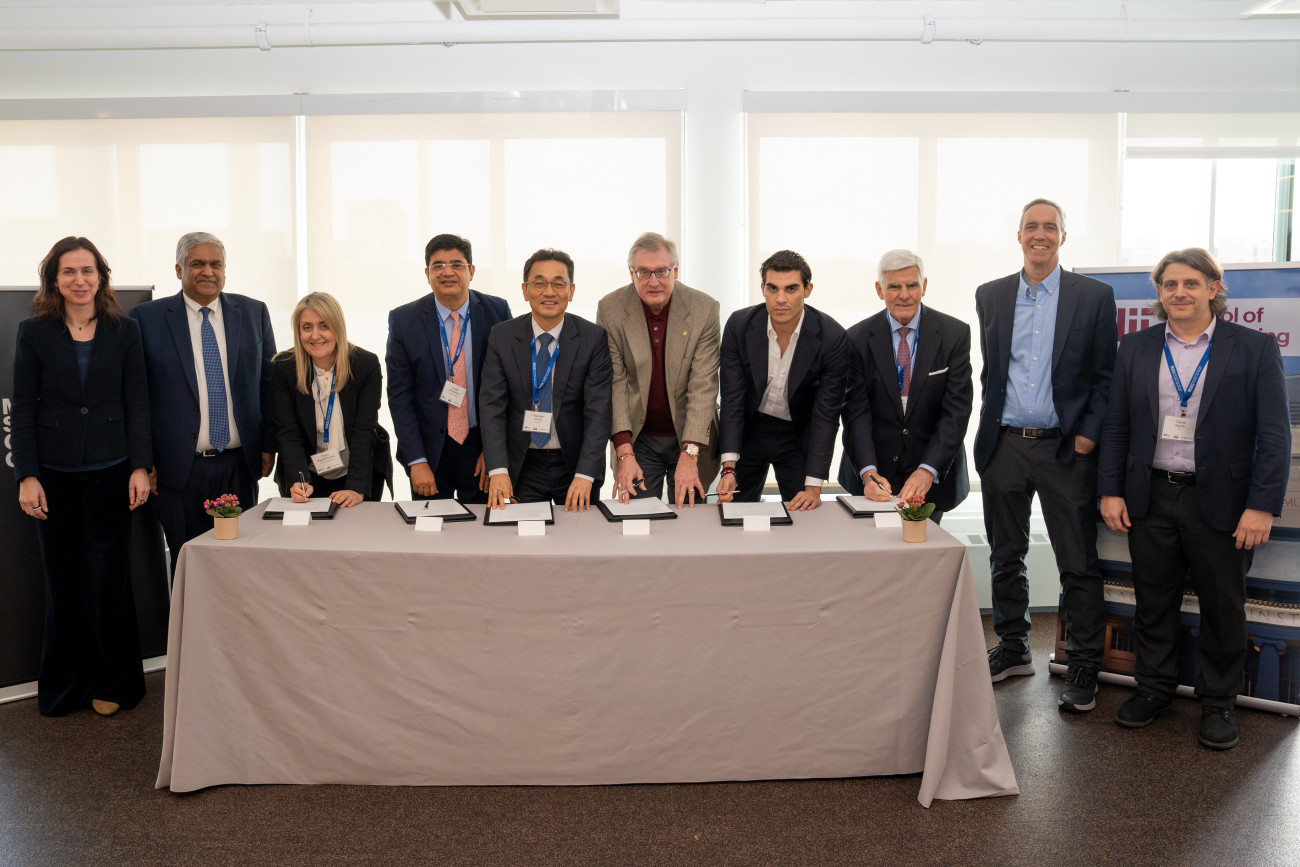
The American Bureau of Shipping (ABS), Capital Clean Energy Carriers Corp. and HD Korea Shipbuilding & Offshore Engineering have joined the MIT Maritime Consortium, a pioneering collaboration between academia and leading industry stakeholders dedicated to developing cutting-edge solutions that enhance industry competitiveness while reducing environmental impact.
This new international consortium brings together academic and maritime industry leaders, developing new technologies for nuclear propulsion and alternative fuels, data-powered strategies for efficient operation and decision making, autonomy and cybersecurity, as well as on-board manufacturing of spare parts. By addressing climate-harming emissions in the maritime shipping industry – which currently transports 90% of world cargoes, while contributing 2% of global energy-related CO2 emissions – this initiative supports compliant, environmentally-friendly operations aligned with the decarbonization goals set by the International Maritime Organization.
Together the members aim to explore new designs that meet the economic, technological and environmental requirements of commercial shipping, assess the feasibility of alternative fuels, develop data-driven algorithms, and enhance autonomous platforms focused on climate, sustainability, AI and AR for manufacturing.
The MIT Maritime Consortium’s Founding Members include the American Bureau of Shipping (ABS), Capital Clean Energy Carriers Corp., and HD Korea Shipbuilding & Offshore Engineering. Innovation Members include Foresight-Group, Navios Maritime Partners L.P., Singapore Maritime Institute, and Dorian LPG.
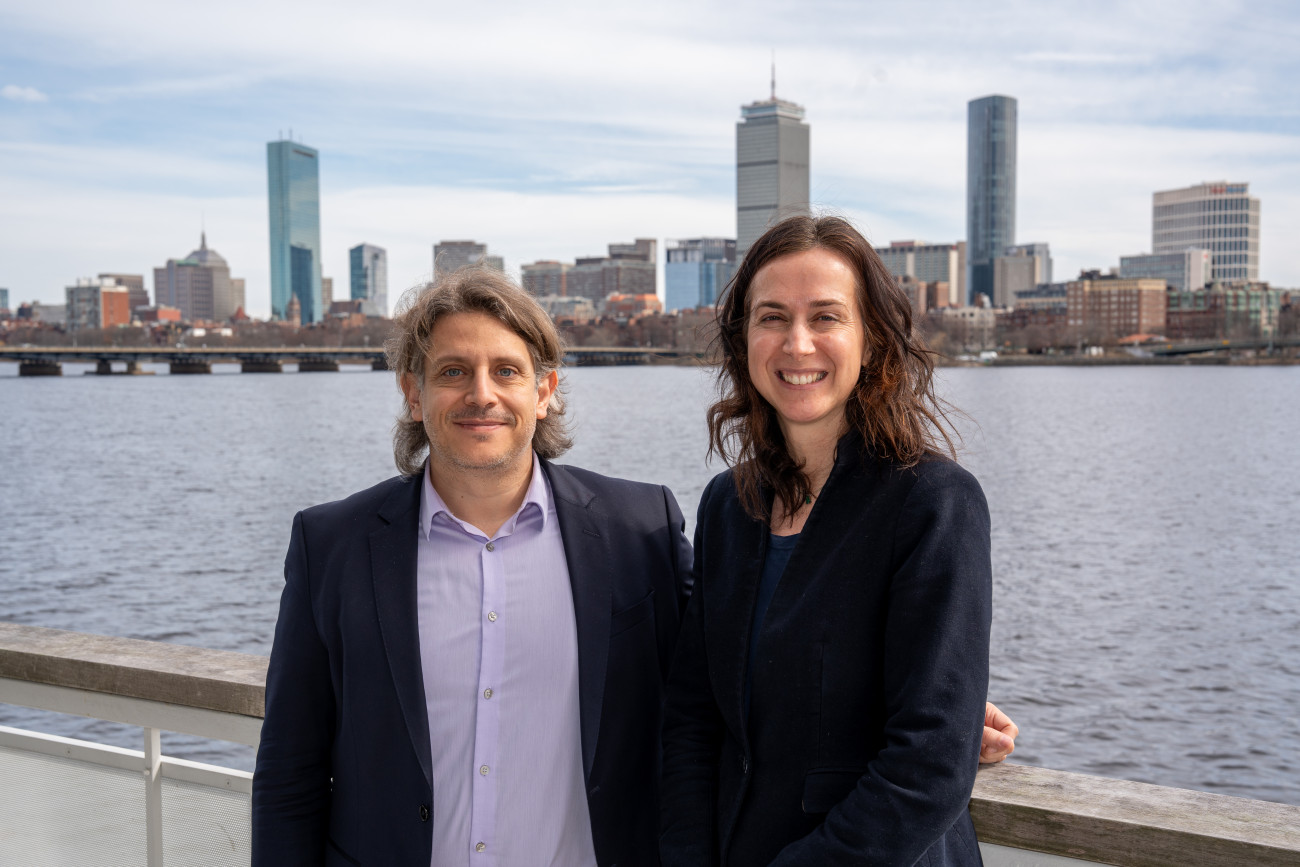
The MIT Maritime Consortium directors: Fotini Christia, the Ford International Professor of the Social Sciences and Director of the Institute for Data, Systems, and Society (IDSS), and Director of the MIT Sociotechnical Systems Research Center (SSRC); Themis Sapsis, William I. Koch Professor and Director of the MIT Center for Ocean Engineering.
Prof. Themis Sapsis, Director of the Center for Ocean Engineering at MIT stated, “This consortium envisions to develop novel engineering solutions towards ship decarbonization, such as nuclear propulsion, advanced data analytics and autonomy, sophisticated cybersecurity frameworks, novel hydrodynamic advancements, and 3d printing technologies, that will create competitive advantage for companies and organizations.
“It is an effort that will bring the latest and greatest from MIT, catalyzing synergies between participating companies and almost every department in the School of Engineering, and in close collaboration with the Schwarzman College of Computing, while elevating our programs in technology and policy, which is an essential ingredient for this type of effort,” Sapsis said.
“This consortium brings a powerful collection of significant companies that, together, has the potential to be a global shipping shaper in itself,” said Christopher J. Wiernicki, ABS Chairman and CEO. “The members are all world-class organizations and real difference makers. The ability to harness their experience and know-how, along with MIT’s technology reach creates real jet fuel to drive progress. As well as researching key barriers, bottlenecks and knowledge gaps in the emissions challenge, the consortium looks to enable development of the novel technology and policy innovation that will be key. Long term, the consortium hopes to provide the gravity we will need to bend the curve to reach emissions objectives.”

The new consortium was formalized in a signing ceremony at MIT last week (Left to Right) Fotini Christia, the Ford International Professor of the Social Sciences and Director of the Institute for Data, Systems, and Society (IDSS), and Director of the MIT Sociotechnical Systems Research Center (SSRC); Anantha Chandrakasan, Dean of the MIT School of Engineering; Chara Papaefthymiou, Navios Maritime Partners, L.P.; Amulya Mohapatra, Foresight Group Services Ltd; Kwangpil Chang, HD KSOE; Chris Wiernicki, ABS; Miltiadis Marinakis, Capital; John Lycouris, Dorian LPG; Daniel Huttenlocher, Dean of the MIT Schwarzman College of Computing; Themis Sapsis, William I. Koch Professor and Director of the MIT Center for Ocean Engineering.
As a Founding Member of the Consortium, Capital Clean Energy Carriers Corp., hopes to play a pivotal role in providing operational expertise and real-world insights from its diverse fleet, which includes various vessel types and technologies. This collaboration aims to drive innovation, establish robust standards, and shape forward-looking policies. By leveraging these insights, along with consortium members, CCEC, will look to contribute to the development of enhanced AI-driven models and technological solutions aimed at optimizing ship efficiency, improving predictive maintenance, and advancing autonomous decision-making.
“At Capital Clean Energy Carriers Corp., we are spearheading the advancement of cutting-edge technologies in the global maritime industry for a more energy-efficient, safer, and sustainable shipping industry. We firmly believe that the newly-founded Maritime Consortium will drive transformative change, fostering innovation in maritime practices, strengthening resilience against challenges, and paving the way for a more sustainable future”, Jerry Kalogiratos, Chief Executive Officer of CCEC commented.
CCEC’s participation in the Maritime Consortium, is a milestone that underscores the company’s unwavering commitment to cleaner energy solutions shaping a greener future for the industry.
“We are pleased to jointly demonstrate HiNAS [Hyundai intelligent Navigation Assistant System] with Capital as part of our efforts to advance AI-based autonomous navigation. We will initiate integrated verification of various solutions developed in collaboration with Avikus. Through our involvement in this consortium, we aim to set global technology standards and spearhead the development of next-generation eco-friendly ships that are both cost-efficient and dependable,” said Mr. Chang Kwangpil, CTO of HD Korea Shipbuilding & Offshore Engineering.
Learn more about the Maritime Consortium at MIT Maritime Consortium – Maritime Research at MIT: maritime.mit.edu
Latest News

When Blue Skies was Unmasked as ND’s Political ‘Slush Fund’
The fact that so many top New Democracy (ND) party cadres were paid by the firm Blue Skies, owned by Thomas Varvitsiotis and Yiannis Olympios, without ever citing this publicly, raises very serious moral issues, regardless of the legality

Greek Women’s Water Polo Team Top in the World after 13-9 Win Over Hungary
The Greek team had previously defeated another tournament favorite, the Netherlands, to reach the final.
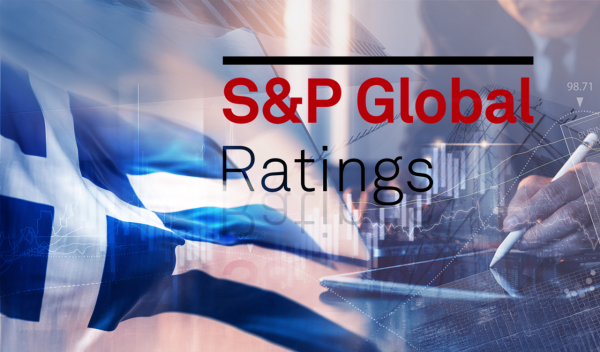
S&P Raises Greek Rating; BBB with Stable Outlook
S&P’s decision raises the Greek economy to the second notch of investment grade ladder, at BBB with a stable outlook.

Greek Tourism Optimistic About Demand from American Market
A recent survey by MMGY Global, conducted from April 3–5 with a sample of 1,000 U.S. adults, found that 83% of Americans still intend to take leisure trips over the next 12 months, a slight drop from 87% in late February

New Exposé by Domumento Reveals Nefarious Triangular Link of ‘Black Money’ with New Democracy, Blue Skies, & Truth Team
The latest exposé by the Documentonews.gr news site lays bare what appears to be a surreptitious path of indirect financing of ND through the business sector—transactions that, as widely understood, rarely occur without expectations of reciprocal benefit

PM Meloni Meets Vice President Vance in Rome Signalling Optimism on Ukraine Talks
Meloni emphasized the strength and strategic value of the Italy-U.S. partnership.

Airbnb: Greece’s Short-Term Rentals Dip in March Amid Easter Shift
Data from analytics firm AirDNA shows that average occupancy for short-term rentals dropped to 45% in March, down from 49% the same month last year.

Easter Week in Greece: Holy Friday in Orthodoxy Today
At the Vespers service on Friday evening the image of Christ is removed from the Cross and wrapped in a white cloth

Meloni and Trump Meet in Washington, Vow to Strengthen Western Ties
“I am 100% sure there will be no problems reaching a deal on tariffs with the EU—none whatsoever,” Trump stressed.

ECB Cuts Interest Rates by 25 Basis Points in Expected Move
The ECB’s Governing Council opted to lower the deposit facility rate—the benchmark for signaling monetary policy direction—citing an updated assessment of inflation prospects, the dynamics of underlying inflation, and the strength of monetary policy transmission.









![Πλημμύρες: Σημειώθηκαν σε επίπεδα ρεκόρ στην Ευρώπη το 2024 [γράφημα]](https://www.ot.gr/wp-content/uploads/2025/04/FLOOD_HUNGRY-90x90.jpg)





![Airbnb: Πτωτικά κινήθηκε η ζήτηση τον Μάρτιο – Τι δείχνουν τα στοιχεία [γράφημα]](https://www.ot.gr/wp-content/uploads/2024/07/airbnb-gba8e58468_1280-1-90x90.jpg)










![Χρυσές λίρες: Φρενίτιδα χωρίς τέλος – Πόσες πούλησαν και αγόρασαν οι Έλληνες [πίνακες]](https://www.ot.gr/wp-content/uploads/2022/12/xrises-lires-600x300.jpg)

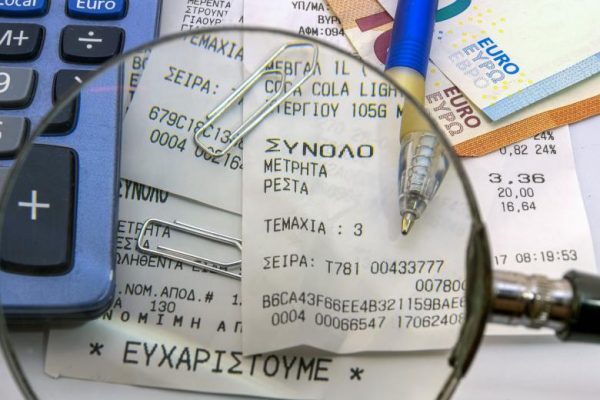
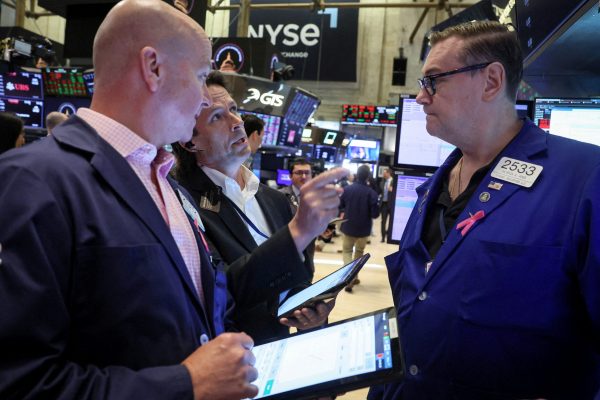

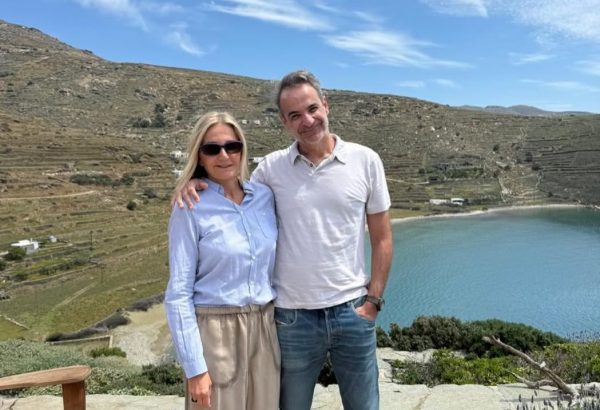
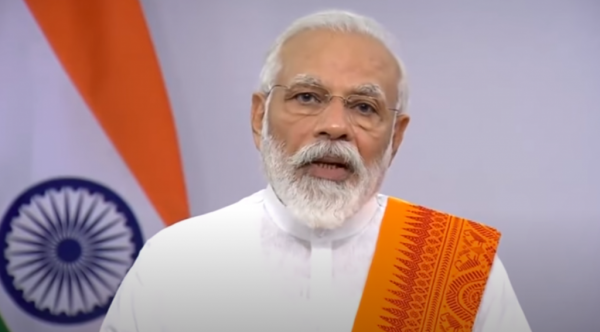








 Αριθμός Πιστοποίησης
Αριθμός Πιστοποίησης